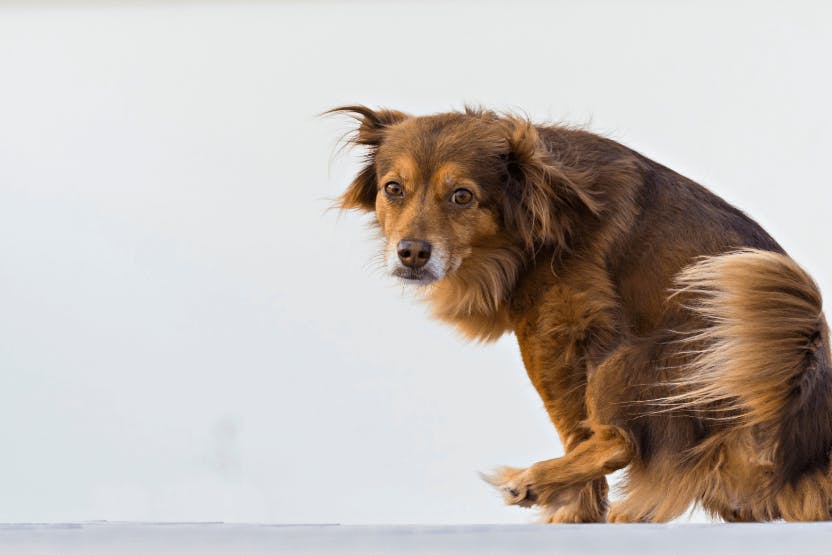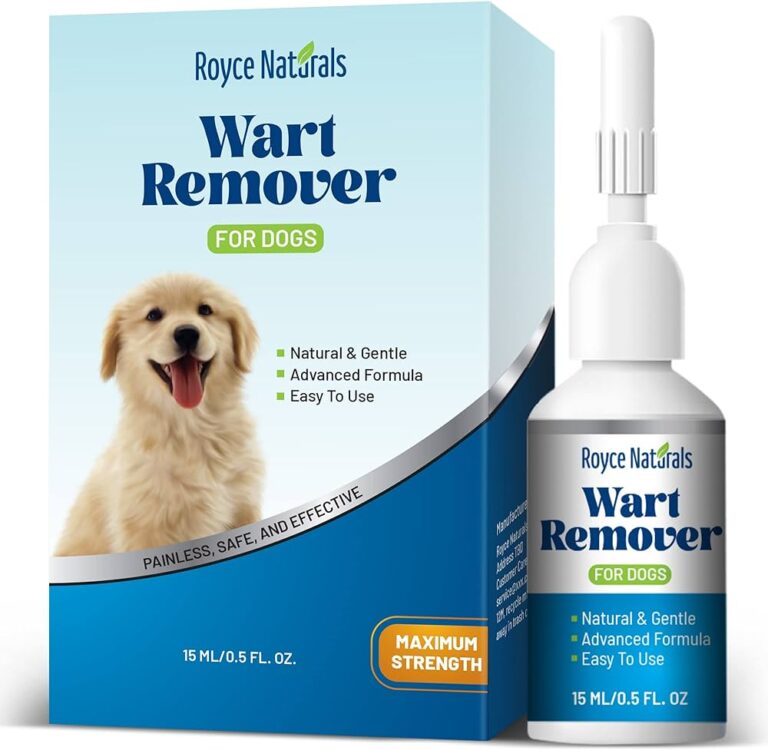To treat your dog’s irritated anus, consult with a vet who may recommend washing and prescribing antibiotics, anti-inflammatory drugs, or ointments specifically designed for anal gland issues. Warm compresses and incorporating more fiber into your dog’s diet may also help alleviate the discomfort.
It is important to use dog-safe hydrocortisone cream if applying topically, but monitor for any side effects and consult your vet if necessary. Additionally, ensuring proper hygiene and regular expression of the anal glands can prevent future irritation and infection.
Consider natural remedies like coconut oil, which has antibacterial and antifungal properties, as a moisturizer to soothe your dog’s discomfort.
Causes Of Dog’s Irritated Anus
To treat your dog’s irritated anus, you can try using dog-safe hydrocortisone cream or Bellfor Anal Gland Ointment, which helps counteract anal gland problems. Additionally, daily warm compresses can provide soothing relief and incorporating more fiber into their diet can help prevent irritation.
Anal Sac Disease
One of the common causes of a dog’s irritated anus is anal sac disease. Dogs have anal sacs, also known as anal glands, located on either side of their anus. These sacs produce a fluid that is normally expelled during bowel movements, but sometimes they can become blocked or infected. This can lead to irritation, swelling, and discomfort for the dog.Infections Or Abscesses
Infections or abscesses in the anal area can also cause irritation to a dog’s anus. These infections can be caused by bacteria or other pathogens that enter the anal area. If left untreated, an infection can develop into an abscess, which is a painful, swollen mass filled with pus. It’s important to have any signs of infection or abscesses in the anal area evaluated and treated by a veterinarian.Dry Or Irritated Skin
Dry or irritated skin around the anus can also be a cause of discomfort for dogs. This can be caused by various factors, such as allergies, environmental irritants, or excessive licking or biting of the area. Dry and irritated skin can lead to itching, redness, and inflammation, which can result in an irritated anus for the dog.To address the causes of a dog’s irritated anus, it is important to first identify the underlying cause. This may require a visit to the veterinarian, who can perform a thorough examination and recommend appropriate treatment options. Treatment may include medication to treat infections or inflammation, changes in diet to address allergies, or the use of moisturizing creams or ointments to soothe dry and irritated skin. In conclusion, understanding the causes of a dog’s irritated anus is essential in providing the necessary care and treatment. Whether it’s anal sac disease, infections or abscesses, or dry and irritated skin, addressing the underlying cause will help alleviate discomfort and promote the overall well-being of our furry friends.
Credit: www.amazon.com
Medical Treatments For Dog’s Irritated Anus
To treat a dog’s irritated anus, your veterinarian may prescribe antibiotics and anti-inflammatory drugs, as well as perform a warm compress. Bellfor Anal Gland Ointment is a natural care product that can help counteract problems with anal glands in dogs.
Apply a dog-safe hydrocortisone cream to alleviate itching, but monitor your dog for any side effects like increased thirst or pacing.
Veterinarian Cleaning And Antibiotics
If your dog’s irritated anus is caused by anal sac disease or an infection, your veterinarian may recommend a thorough cleaning and the use of antibiotics. During the veterinary cleaning, your vet will carefully wash out the sacs to remove any accumulated debris and bacteria. This procedure helps to reduce inflammation and prevent the development of abscesses.Following the cleaning, antibiotics may be prescribed to combat the infection. Antibiotics are medications that are effective in killing bacteria and preventing the spread of infection. It is crucial to follow your vet’s instructions and ensure that your dog completes the full course of antibiotics to eliminate the infection completely.Draining Abscesses
In some cases, if the irritation in your dog’s anus has progressed to an abscess (a swollen, tender mass filled with pus), your veterinarian may need to drain it. This procedure is typically performed under anesthesia to minimize discomfort for your furry friend. During the drainage, your vet will make a small incision to allow the accumulated pus to be released.Draining the abscess helps relieve pain and promotes healing. Following the drainage, your vet may clean the area and prescribe antibiotics to prevent reinfection. It is important to monitor your dog closely after the procedure and contact your vet if any complications or signs of infection occur.Prescription Medications
In some cases, your veterinarian may prescribe specific medications to address the irritation in your dog’s anus. These prescription medications may include anti-inflammatory drugs and ointments. Anti-inflammatory drugs help reduce swelling and relieve discomfort in the affected area.Ointments specifically designed for the anal area may also be prescribed to soothe irritation and promote healing. These ointments are typically applied externally and can provide relief from itching, redness, and inflammation. It is important to carefully follow your vet’s instructions for the application of these prescription medications to ensure the best results. In conclusion, when it comes to medical treatments for your dog’s irritated anus, your veterinarian will determine the most appropriate course of action. This may include cleaning the area, administering antibiotics, draining abscesses if necessary, or prescribing specific medications. It is crucial to seek veterinary care if you notice any signs of irritation or discomfort in your furry friend’s anal area to prevent further complications and promote their well-being.Home Remedies And Solutions For Dog’s Irritated Anus
Dealing with a dog’s irritated anus can be a distressing experience for both you and your furry friend. Luckily, there are several effective home remedies and solutions that can help provide relief and promote healing. By using these natural methods, you can minimize discomfort and prevent further irritation to your dog’s sensitive area.
Use Of Hydrocortisone Cream
One of the most commonly used home remedies for a dog’s irritated anus is the application of dog-safe hydrocortisone cream. This cream works by reducing inflammation and soothing the affected area. When using hydrocortisone cream, it is important to apply a thin layer directly to the irritated skin, following the instructions provided by your veterinarian. However, it’s essential to monitor your dog to ensure they do not excessively lick the area, as this can lead to mild side effects such as panting, increased hunger/thirst, or pacing.
Warm Compresses
Another effective home remedy for relieving discomfort and reducing irritation in your dog’s anus is the use of warm compresses. By applying a warm water compress to the affected area, you can help soothe inflammation, reduce discomfort, and promote healing. To create a warm compress, make sure the water is comfortably warm, but not too hot to prevent any burns. Gently press the warm compress against your dog’s irritated anus for a few minutes at a time, several times a day.
Natural Moisturizers
In addition to hydrocortisone cream and warm compresses, you can also consider using natural moisturizers to soothe your dog’s irritated anus. Natural moisturizers, such as organic coconut oil or aloe vera gel, can help moisturize the skin, reduce dryness, and promote healing. Remember to choose products that are safe for dogs and apply a thin layer of the moisturizer directly to the affected area. Be sure to consult with your veterinarian before using any new product on your dog.
In conclusion, when it comes to alleviating your dog’s irritated anus, home remedies can be a safe and effective option. By using dog-safe hydrocortisone cream, warm compresses, and natural moisturizers, you can help soothe inflammation, reduce discomfort, and promote healing. However, it’s always important to consult with your veterinarian before trying any new home remedies and to closely monitor your dog’s condition for any signs of improvement or worsening. By providing proper care and attention, you can help your furry friend find relief from their irritated anus and get back to their happy and healthy self.

Credit: www.everydayhealth.com

Credit: wagwalking.com
Frequently Asked Questions On What Can I Put On My Dog’s Irritated Anus
How Do You Treat An Inflamed Anus In A Dog?
To treat an inflamed anus in a dog, the vet will wash out the sacs and prescribe antibiotics and anti-inflammatory drugs. Warm compresses can also provide relief. For external use, Bellfor anal glands ointment is a natural care product that helps with anal gland problems in dogs.
What Is The Best Ointment For Dogs Anus?
The best ointment for a dog’s anus is Bellfor Anal Gland Ointment, a natural care product that helps relieve anal gland problems in dogs. Simply apply the ointment externally to counteract the issues with the anal glands.
What Cream Can I Put On My Dogs Itchy Bum?
You can use dog-safe hydrocortisone cream on your dog’s itchy bum. Just be aware that your dog may experience mild side effects such as panting, increased hunger/thirst, and pacing. If the irritation persists or worsens, it’s best to consult your veterinarian for further advice.
What To Do When Dogs Anus Is Red?
If your dog’s anus is red, inflamed, or painful, it’s best to consult a vet for proper treatment. Your vet may need to examine the area and provide medication or ointments to alleviate discomfort. Avoid attempting to handle the area yourself, as it could cause your dog additional pain.
Conclusion
To alleviate your dog’s irritated anus, a variety of remedies can be helpful. First, consult your veterinarian for a proper diagnosis and treatment plan. Your vet may recommend cleaning the area and prescribing antibiotics or anti-inflammatory drugs. Additionally, warm compresses can provide relief.
For external use, you can consider using dog-safe hydrocortisone cream or natural ointments specifically designed for anal gland issues. Remember to closely monitor your dog for any adverse reactions and seek veterinary attention if necessary. With the right care, your dog’s discomfort can be effectively addressed.



